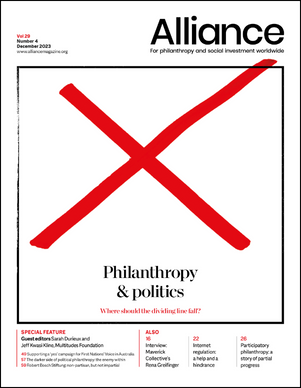Sometimes, philanthropy needs to counter the position of political leaders – even where the issue is not on the face of it political
Between 2019 and 2022, Brazil saw a rise in anti-science sentiment led by the government of former President Jair Bolsonaro. Prime results of this were hesitation in the use of vaccines to combat the Covid-19 pandemic and the adoption of conservative fundamentalist agendas. As a result, public investment in science had decreased significantly by the end of Bolsonaro’s term, reaching its lowest point in two decades.
The Brazilian Senate inquiry into the government’s response to Covid-19 identified over 60 individuals responsible for mismanagement and crimes during the pandemic. These crimes included bid fraud, corruption, irregular use of public funds, forgery of public documents, incitement to crime, and even crimes against humanity.
An article in the UK’s Guardian newspaper in 2021 reported testimony before the Senate inquiry by Pedro Hallal, a professor at the Federal University of Pelotas who led a study into the scale of the disaster. He argued that approximately 400,000 of the 500,000 deaths claimed by the pandemic could have been avoided had proper sanitary measures been implemented.
Subscribe now from only £45 a year!
This article is only available for our subscribers
Existing users can login here



